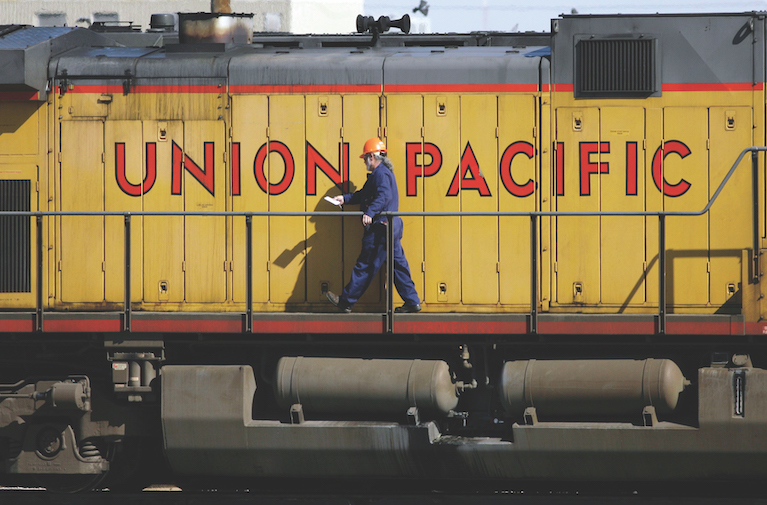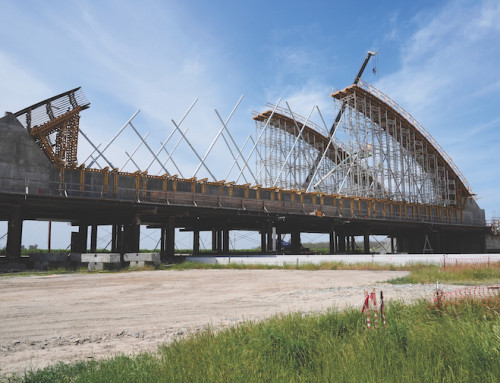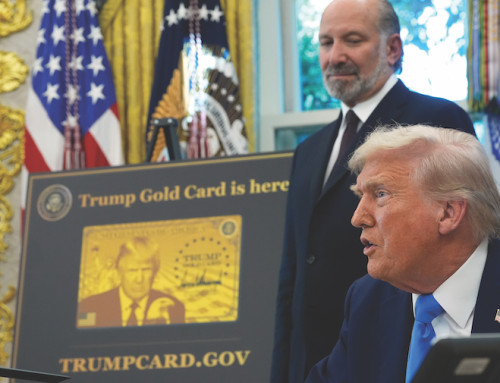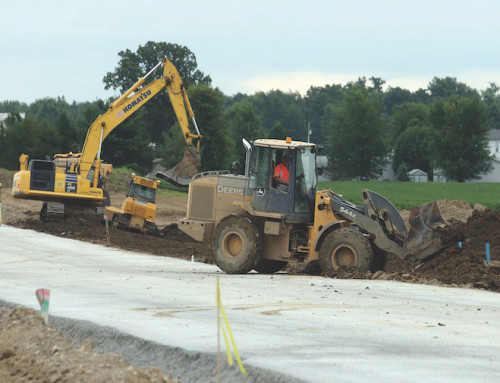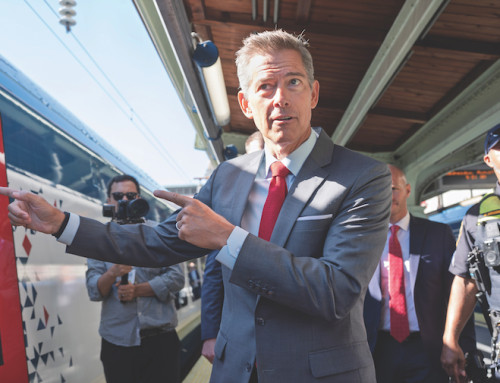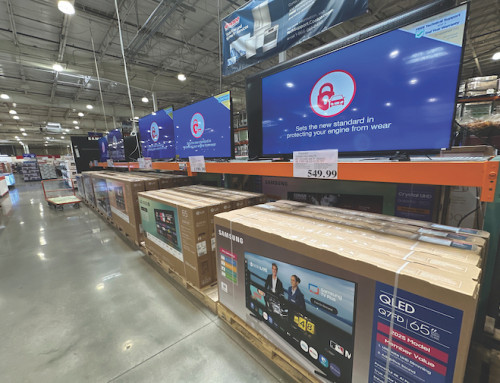OMAHA, Neb. (AP) — The nation’s largest railroad union earlier this week joined the list of companies endorsing Union Pacific’s proposed $85 billion acquisition of Norfolk Southern after securing promises to protect jobs, but other unions and chemical makers that rely on the railroad operators are still expressing concerns about the deal.
The SMART-TD union that represents conductors and other rail workers said Union Pacific put CEO Jim Vena’s promise not to lay off any of its workers as a result of the merger in writing and promised to protect their jobs throughout their careers.
The head of one of the next biggest unions, however, said he doesn’t think this deal does nearly enough to protect rail jobs, so he said he’s not ready to support the merger that would create the nation’s first transcontinental railroad company.
The union’s endorsement came just days after President Donald Trump told reporters in the Oval Office that the deal sounds good to him, but groups such as the American Chemistry Council and the Rail Customer Coalition have said they worry that allowing two of the six largest railroad firms to merge will only hurt competition and lead to even higher shipping rates.
The president of the Brotherhood of Maintenance of Way Employees Division union said he believes his Teamsters have enough influence with the White House that he may be able to change Trump’s mind once he gets a chance to explain some of the details and the tactics he believes the railroad company will use to eliminate jobs.
SMART-TD President Jeremy Ferguson, who initially criticized the merger and promised to oppose it, however, said that he now believes it is for the best after the railroad operator promised to protect jobs.
“For generations, railroaders have worried about what mergers might mean for their jobs and whether or not they would be given the opportunity to reach retirement on the rail,” Ferguson said. “Today, we can say with confidence that the biggest railroad and the biggest rail union in America are breaking new ground. We are protecting jobs, protecting families, and protecting the future of the U.S. supply chain.”
Tony Cardwell, president of the BMWED, said his union rejected a similar offer from Union Pacific a couple weeks ago because the railroad company wouldn’t agree to protect workers if it decides to lease more of its tracks to short-line railroads to handle the final deliveries as it has already done in a couple locations.
He said what good is a promise of a job if it means either taking a pay cut to go to work for a smaller railroad firm or moving across the country to keep a job with Union Pacific.
Cardwell said that until workers in those situations are protected “We’re not going to support it. In fact, we’ll vehemently deny it. And we feel like we have a close enough relationship right now with the White House that we can have an impact on this.”
Trump’s opinion of the deal could prove crucial because he’ll appoint two more Republican members of the Surface Transportation Board that will ultimately decide whether to approve the largest rail merger in history. Last month, Trump fired one of the two Democratic members of the board.
The president of the American Chemistry Council trade group, Chris Jahn said he’s worried that this proposed acquisition will follow the pattern of problems that followed past railroad company mergers in the 1990s.
Deliveries were delayed and disrupted for extended periods after both the Union Pacific-Southern Pacific deal and the Conrail acquisition.
“History has shown that mergers slash service and shift costs onto customers — and the UP–NS merger risks more of the same,” Jahn said. “President Trump has made real progress rebuilding American manufacturing. Let’s not let a monopoly undo it.”
Many others, however, have endorsed the merger since it was announced, including shippers of consumer goods and a major plastic maker who look forward to the prospect of faster deliveries because Union Pacific would no longer have to hand over shipments to Norfolk Southern in Chicago, which can easily add a day or two.
“By knitting together a coast-to-coast rail network, Union Pacific and Norfolk Southern are creating new efficiencies that will benefit everyone — from logistics providers like us, to our customers, to the end consumers,” said Adam Miller, CEO of Knight-Swift Transportation.
His company is a major shipper that trucks metal goods to railroad operators and then pays them to haul the trailers across the country before Knight-Swift picks them up again with its trucks to deliver them.
Frank Vingerhoets said he believes combining the two railroad firms will help his company’s plastics reach their destinations more quickly and efficiently.
“It means the plastic pellets and other products we handle can reach key markets faster and more seamlessly than ever. In short, it’s a win for shippers and for the entire supply chain,” said Vingerhoets, who is president of Katoen Natie North America.
The Surface Transportation Board review of the deal could take up to two years to complete. The board established a high bar for major rail mergers after the problems of the past, but Union Pacific and Norfolk Southern executives have expressed confidence in their chances of gaining approval.
“I am confident we will unlock new sources of growth for the country and our industry, taking more trucks off taxpayer-funded highways, serving new markets and keeping more railroad jobs in America,” said Vena, the Union Pacific CEO.


